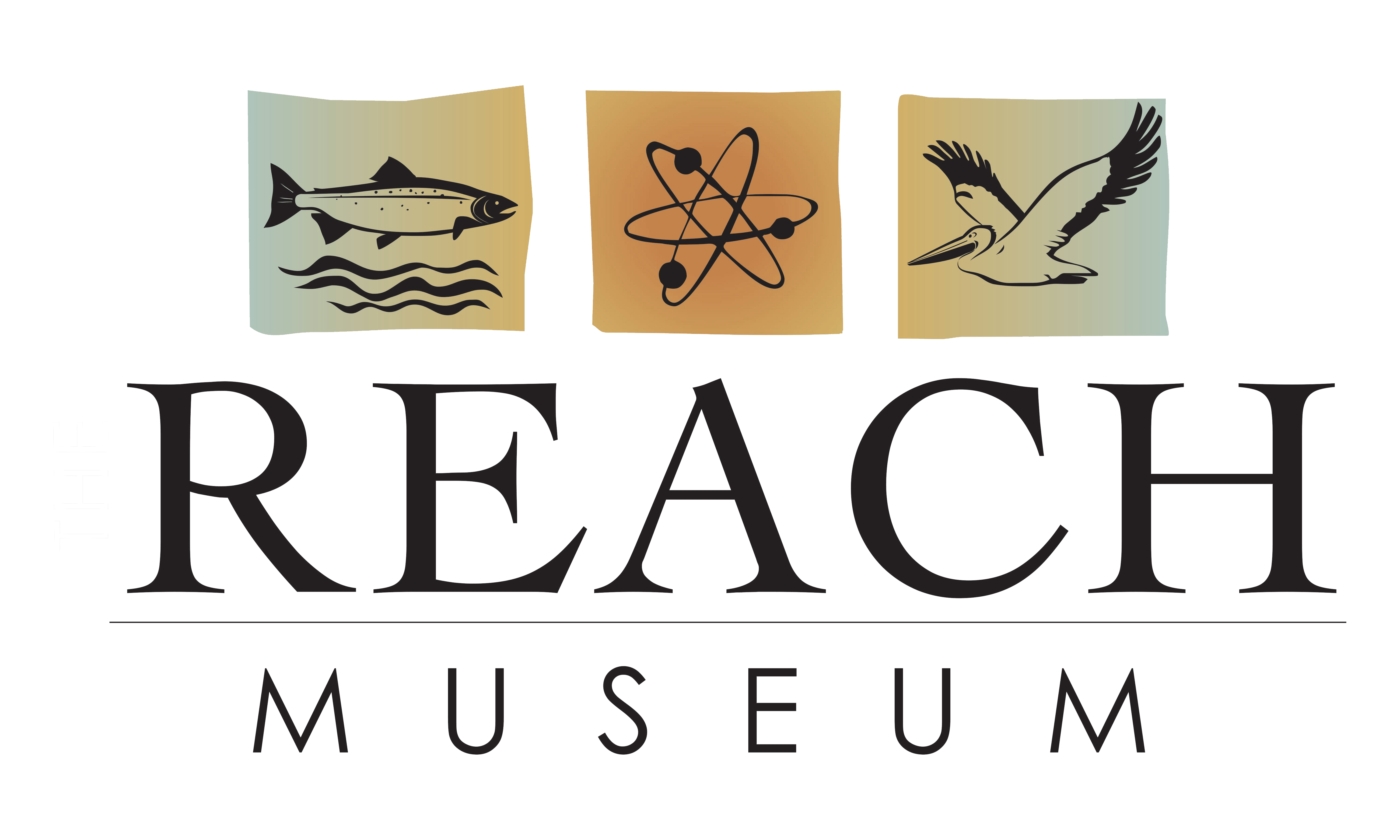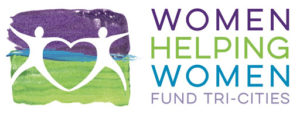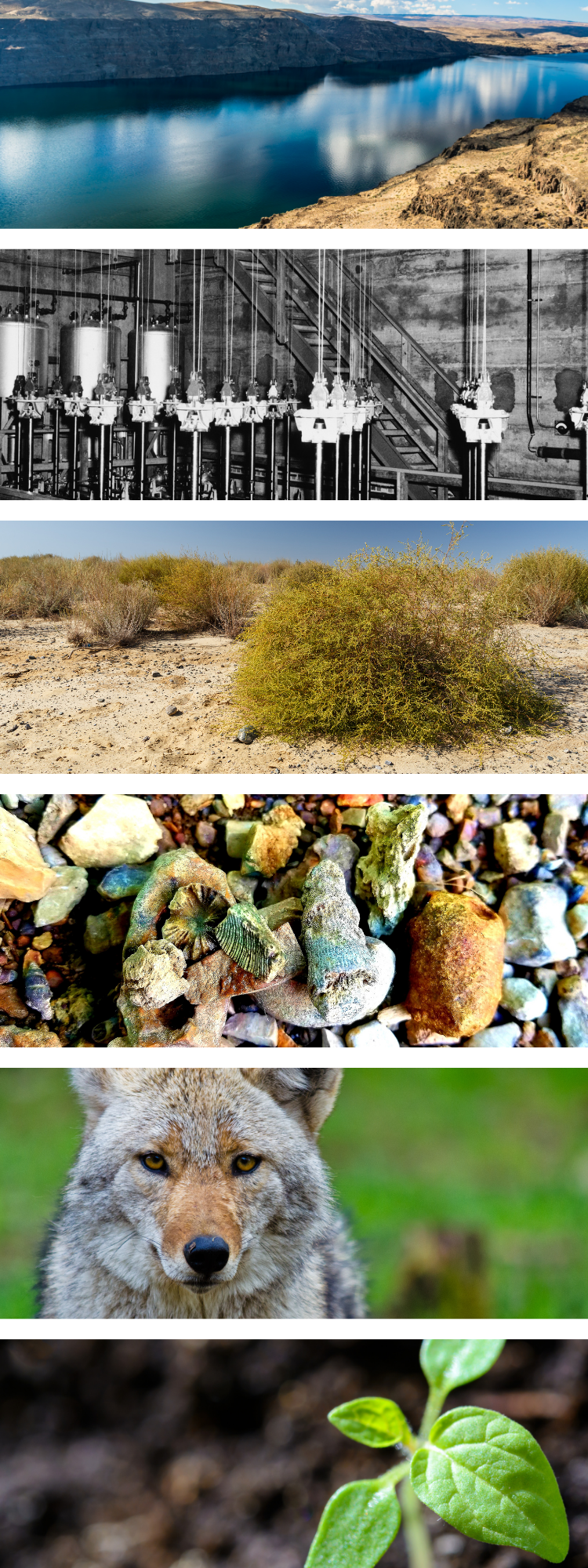Columbia River Resources for grades 2 to 5
Explore how people have been using the river’s resources throughout history. Meet some of the river’s creatures and understand how we can help protect their habitat.
Columbia River Resources for grades 6 to 12
Reflect on human use and impacts on the river throughout the past two hundred years using maps and models. Explore current research that is helping us better understand the river ecosystem and our effects on it.
Hanford Legacy for grades 5 – 12
Investigate artifacts and REACH exhibits to learn the stories behind Hanford’s role in the Manhattan Project, and get a glimpse into life at the Hanford Engineering Works during WWII and the Cold War.
Shrub-steppe Ecosystem for grades K-5
Explore animal and plant activity through the seasons in the arid lands of the Hanford Reach. Students use observation skills and drawing to understand how diverse parts of the ecosystem rely on each other for life.
Shrub-steppe Ecosystem for grades 6-12
The Hanford Reach National Monument preserves biodiverse areas of shrub-steppe, undeveloped because of the Han-ford site and home to animal and plant species found nowhere else. Research conducted on the Monument increases our understanding of human impacts on the ecosystem, including the effects of invasive plant species and the role of biological soil crust. Students use practices of nature journaling to understand the unique components of this arid ecosystem and their interconnections.
Geologic Past for grades 2-5 or grades 6-8
Journey through the exciting past of the mid-Columbia River region by exploring its rocks, fossils, and landforms. Meet some of the Pleistocene creatures that once roamed the land and river. Students will relate local features to the rock cycle and story of the earth itself, including lava flows and Ice Age floods.
Washington Wildlife for preschool
Explore the amazing animals that live in the Columbia Basin and the special ways they survive in the dry shrub-steppe and in the river. Stories, songs, and movement help us learn how these animals are different from us but still so important.
Plants and Seeds for preschool
Explore native plants of the Columbia Basin and our neighborhoods to learn what makes them special. Stories, songs, and movement help us learn the connections among plants, animals, and people.





